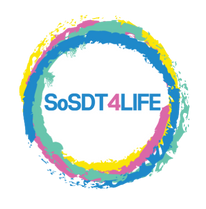TCM, or traditional Chinese medicine, is not intended to be used in place of standard Western cancer care. Numerous scientific studies have demonstrated its efficacy in enhancing a cancer patient’s quality of life and mitigating the negative effects of cancer therapy.
What precisely is cancer?
Cancer is a disease in which abnormal growth occurs in specific cells of the body, which can then metastasize (spread to other areas of the body) at an alarming rate. In a healthy individual, cells with damaged DNA are eliminated by the immune system long before they can cause cancer. However, as we get older, this ability of the body begins to decline. Because of this, there is a greater likelihood of developing cancer in old age.
The growing population of people living with cancer is a reflection of the rising incidence of the disease. Cancers of the colon, ovaries, breasts, lungs, prostate, and stomach are among the most common forms of the disease.
How Complementary and Alternative Medicines (CAM) Can Help with Cancer Treatment
Cancer is typically treated with one or more of three methods: chemotherapy, radiation therapy, or surgery. They are employed either alone or in tandem with other treatments for the purpose of curing or alleviating cancer and its symptoms.
However, because of how the treatments work, patients frequently report a dramatic drop in quality of life as a result of the severe side effects. As a result, many people with cancer are turning to CAM in hopes of finding some additional relief from their symptoms. Integrating CAM into cancer care has been linked to improved survival and symptom control.
Differences between Western Medicine and Traditional Chinese Medicine
Traditional Chinese medicine (TCM) is an example of complementary and alternative medicine (CAM) modality that has found widespread application in cancer treatment. Western medicine uses a patient’s symptoms to determine a diagnosis and then employs treatments like medication and surgery to alleviate the patient’s suffering. In contrast, traditional Chinese medicine (TCM) is founded on the principle of treating the whole person, not just the symptoms that have been presented. This includes the patient’s mental and emotional health, as well as their Qi (vital energy). Acupuncture, herbs, exercise, and massage are often prescribed to restore a patient’s Qi because it is believed that disharmony or imbalance within the body is the source of illness. We don’t just treat the symptoms, but also promote a healthy body to help stop illness before it starts and speed up the healing process when it does occur.
Acupuncture, Chinese herbal medicine, nutrition and dietary therapy, tui na (Chinese therapeutic massage), qi gong (meditative moving meditation), and tai chi are all examples of TCM modalities.
Why and how TCM can be used to supplement standard oncology
Cancer patients may benefit from a combined Western and TCM approach to treatment. Traditional Chinese medicine is not meant to replace conventional cancer treatment. The good news is that it can be used as a helpful adjunct to standard cancer treatments.
Bettering people’s lives in meaningful ways
Clinical trials and other research have shown that traditional Chinese medicine (TCM) can be effective in treating cancer. There were no major adverse effects linked to the use of Chinese herbal medicine for cancer treatment, according to a 2015 systematic review.
Reducing the Pain of Cancer Treatment
Acupuncture, like herbal medicine, can help ease symptoms and boost cancer patients’ quality of life, but it doesn’t add to the toxic load patients already have to carry around. Side effects from cancer treatments, such as chemotherapy, surgery, and radiotherapy, can be very unpleasant and even life-threatening.
Acupuncture has been shown to improve the quality of life and emotional well-being of cancer patients by addressing issues like depression, anxiety, and sleep disturbances. The Journal of Clinical Oncology published another study on the efficacy of acupuncture in reducing chemotherapy-related nausea and vomiting in 2005.
Cancer care from a holistic perspective
Due to its holistic nature, TCM takes into account a wide variety of external factors that can weaken the immune system, and then offers individualized guidance and treatment that zeroes in on the underlying causes of disease. Examples of such recommendations include ensuring that cancer patients get enough sleep, eat well, stay active, manage their stress levels, and keep a positive outlook on life.
SoSDT4Life Recommendations for Traditional Chinese Medicine Treatments:
The complementary treatment of cancer with TCM has been shown to be effective, but patients should always consult their doctor before beginning any new treatment. If you are also receiving alternative treatments, such as Chinese herbal medicine, it is important to let your doctors know. Better health outcomes can be expected when Western and TCM treatments are combined, and your doctors will be able to advise you on the best TCM treatment for you. We at SoSDT4Life treat cancer with TCM and the most up-to-date treatments for different types of cancer. We also take the best care of our patients during and after treatment to improve their quality of life. For more information, contact us today at admin(at)cancertherapies(dot)cc or give us a call at +86 138 2212 0373.

Leave A Comment
You must be logged in to post a comment.